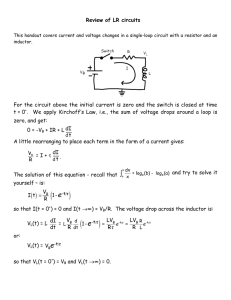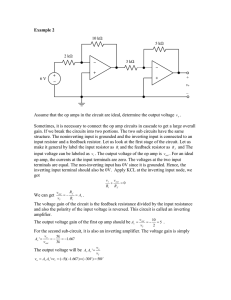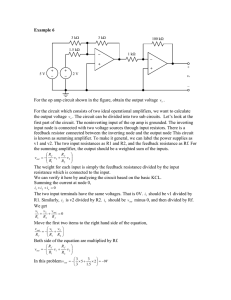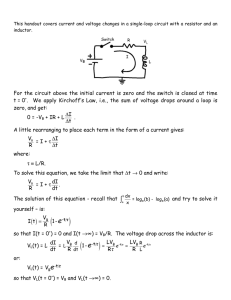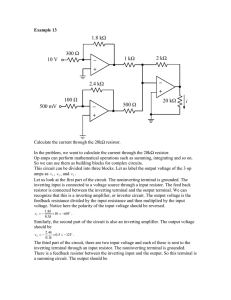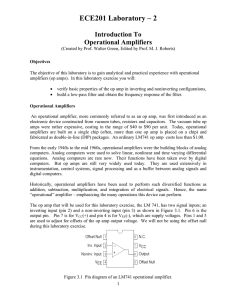Example 10 _ +
advertisement
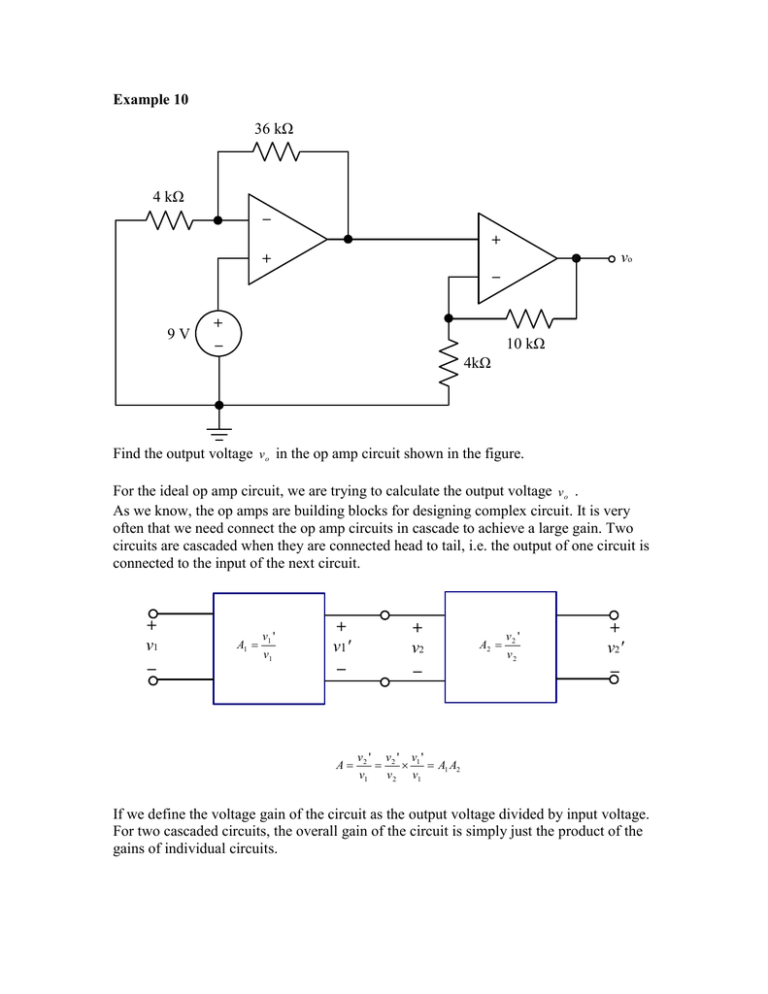
Example 10 36 kΩ 4 kΩ _ + + 9V vo _ + _ 10 kΩ 4kΩ Find the output voltage v o in the op amp circuit shown in the figure. For the ideal op amp circuit, we are trying to calculate the output voltage v o . As we know, the op amps are building blocks for designing complex circuit. It is very often that we need connect the op amp circuits in cascade to achieve a large gain. Two circuits are cascaded when they are connected head to tail, i.e. the output of one circuit is connected to the input of the next circuit. + v1 _ A1 v1 ' v1 + v1' _ A + v2 _ A2 v2 ' v2 + v2' _ v 2 ' v 2 ' v1 ' A1 A2 v1 v 2 v1 If we define the voltage gain of the circuit as the output voltage divided by input voltage. For two cascaded circuits, the overall gain of the circuit is simply just the product of the gains of individual circuits. For this circuit, we can break it into two sub circuits. Let us label the input output voltages v i , v out . This is an noninverting amplifier circuit. The input voltage is connected to the noninverting terminal. There is one resistor connected between the inverting input and the output. The other resistor connects the inverting terminal with the ground. The voltage gain of noninverting amplifier is simply 1 plus the feedback resistance divided by the input resistance. We can verify it here. The two input terminals should have the same voltages 9V. The input current at each of the input terminals should be zero. Applying KCL gives us, v i v i v out 0 Ri Rf Multiply the equation by R f , which gives us vi R f v i v out 0 Ri Rf vi v i R f v i 1 Ri Ri 36 k A1 1 10 4k So, v out The second circuit is also a noninverting amplifier. The input voltage is connected to the noninverting terminal. There is one resistor connected between the inverting input and the output. The other resistor connects the inverting terminal with the ground. So the voltage gain should be 10 k A2 1 3. 5 4k The total gain of the circuit is vo A A1 A2 10 3.5 35 . vi The output is the product of the input and the voltage gain. That is 9 times 35, which gives us 315V.

